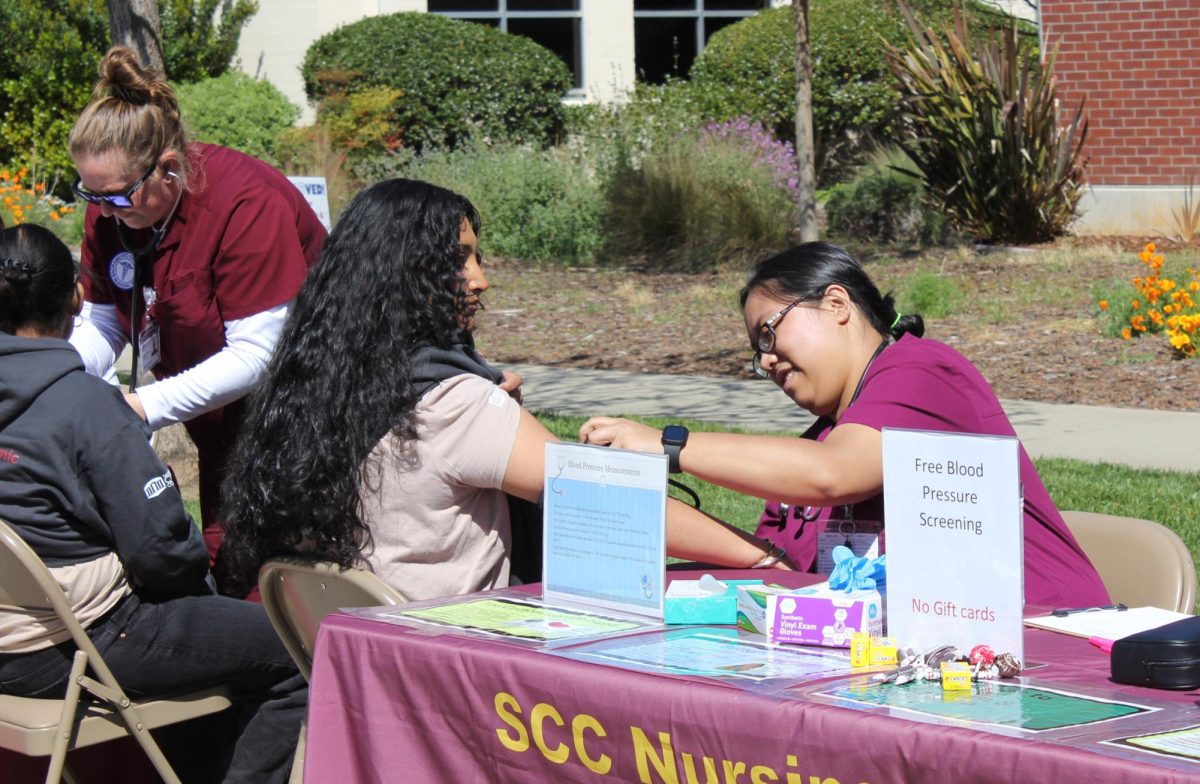This election has been a constant source of drama and entertainment. Scandals, accusations, health scares, investigations and a wall seem to be the focal point of any mainstream discussion.
Regardless of any political drama in the last year, it is safe to say that one of two people will be the next President of the United States in January: Democrat Hillary Clinton or Republican Donald Trump.
For those unhappy with either of the front runners, there are other options. According to Ballotpedia, 1,910 candidates filed a Statement of Candidacy with the Federal Election Commission. Most notably among these alternative choices are Libertarian nominee Gary Johnson and Green Party’s nominee Jill Stein.
They will lead new policy initiatives and nominate new Supreme Court justices. Everyone of us should be familiar with their policy positions and their professional experience so that we can make informed decisions on Nov. 8 when we vote.
On each candidate’s website you can find their in-depth policy platform with the issues they have been campaigning for over the last year.
Hillary Clinton
Hillary Rodham Clinton is the current Democratic Party nominee for president of the United States. She received her J.D., a graduate-entry professional degree in law, from Yale University in 1973 at age 26. A year later she became one of two female faculty members at University of Arkansas School of Law in Fayetteville. She later joined the Rose Law Firm, the third oldest law firm in the United States, as its fi rst female associate and partner.
In 2000 following her husband’s presidency, she was elected as the first female senator from New York, and was the first FirstLady in American history to run for elected offi ce. After serving for eight years, she ran for president and won 1,896 delegates, more than any previous female candidate.
With Clinton as nominee, the Democratic National Committee’s platform has been regarded as the most progressive in history: emphasizing raising the minimum wage to $15 an hour, pathways to citizenship for undocumented immigrants, improving the Affordable Care Act and increasing taxes on the wealthy.
The following information on selected issues is taken directly from Clinton’s campaign website.
Mental Health:
- Promote early diagnosis and intervention.
- Launch a national initiative for suicide prevention.
- Integrate our nation’s mental and physical health care systems so that health care delivery focuses on the “whole person” and expand community-based treatment.
- Prioritize treatment over jail for low-level, nonviolent offenders.
- Help train law enforcement officers in responding to conflicts involving persons with mental illness.
- Invest in brain behavioral science research.
Health care:
- Defend and expand the Affordable Care Act, which covers 20 million people.
- Bring down out-of-pocket costs like copays and deductibles.
- Reduce the cost of prescription drugs.
- Incentivize states to expand Medicaid.
- Defend access to reproductive health care.
- Double funding for community health centers.
- Paid Family and medical leave
National Service:
- Expand AmeriCorps to allow hundreds of thousands of more Americans to serve their communities.
- Create a National Service Reserve to enable millions of Americans across the country to engage in part-time volunteer service to their communities
- Build on the current AmeriCorps Segal Education Award…so that AmeriCorps members can earn more than $10,000 for college for every year of full-time service.
Immigration
- Comprehensive immigration reform with a pathway to full and equal citizenship within first 100 days in office.
- Defend President Obama’s executive actions—known as DACA and DAPA—against partisan attacks.
- Create a national Office of Immigrant Affairs.
Taxes
- Close corporate and Wall Street tax loopholes and invest in America.
- Simplify and cut taxes for small businesses so they can hire and grow.
- Provide tax relief to working families from the rising costs they face.
Education
- Make college debt free
- Invest in computer science and STEM education
- Provide affordable broadband to 100% of households in America by 2020.
- Offer comprehensive support to sexual assault on college campuses
Donald Trump
Donald Trump is the Republican Party nominee for President of the United States. In 1968 Trump graduated from the University of Pennsylvania with a bachelor’s degree in economics. In 1971, he was given control of his father’s real estate firm, The Trump Organization. The organization has facilitated the building of office towers, hotels, casinos, and other facilities around the world.
In late 1999, Trump briefly campaigned to be the Reform Party’s nominee for the 2000 presidential election. He focused on issues of eliminating the national debt and universal healthcare.
Since 2004, Trump has hosted a total of 14 seasons of “The Apprentice,” a game show in which contestants’ business skills are pitted against each other.
In June 2015, Trump announced that he would once again enter the presidential race and is now the nominee for the Republicans. His campaign has centered around such issues as strengthening immigration laws, building a U.S.-Mexico border, repealing the Affordable Care Act, and temporarily banning all Muslims entering the United States.
The following information on selected issues is taken directly from Trump’s campaign website.
Healthcare
- Repeal and replace Obamacare withHealth Savings Accounts (HSAs).
- Create a patient-centered health care system that promotes choice, quality and affordability.
- Establish high-risk pools to ensure access to coverage for individuals who have not maintained continuous coverage.
- Allow people to purchase insurance across state lines in all 50 states.
Cyber security
- Create Cyber Review Team to immediately review all U.S. cyber defenses and vulnerabilities.
- Instruct the U.S. Department of Justice to create Joint Task Forces throughout the U.S. to coordinate federal, state, and local law enforcement.
- Immigration
- Establish an impenetrable physical wall on the southern border, on day one. Mexico will pay for the wall.
- Detain and remove illegal entrants.
- Triple number of ICE agents.
- Ensure a biometric entry-exit visa tracking system at all land, air and sea ports.
Education
- Add additional federal investment of $20 billion toward school choice. This will be done by reprioritizing existing federal dollars.
- Establish the national goal of providing school choice to 11 million school-aged children living in poverty.
- Ensure the opportunity to attend a two or four-year college, or to pursue a trade or a skill set through vocational and technical education.
Taxes
- Brackets & rates for married-joint fi lers:
- Less than $75,000: 12%
- More than $75,000 but less than $225,000: 25%
- More than $225,000: 33%
- Increase the standard deduction for joint filers to $30,000, from $12,600, and the standard deduction for single filers to $15,000.
- Childcare exclusion provided to families who use stay-at-home parents, grandparents or paid caregivers, and would be limited to four children per taxpayer capped at $5,000 per year.
- Taxpayers would be able to establish Dependent Care Savings Accounts (DCSAs) for the benefi t of specific individuals, including unborn children.
Gary Johnson
Gary Johnson, 63, is a graduate of the University of New Mexico. Johnson started his own business, Big J Enterprises, which grew to become a leading construction company in New Mexico. He was governor of New Mexico from 1994–2002.
During his two terms, Johnson vetoed 750 bills, advocated for legalization of marijuana and proposed a wide range of tax cuts.
This year, he won the Libertarian Nomination. His campaign promotes limited government and military noninterventionism, avoiding alliances with other nations to avoid being drawn into wars not related to domestic defense.
Johnson’s policy initiatives and promises include:
- Vetoing legislation that will result in deficit spending.
- Replace all income and payroll taxes with a single consumption tax
- Setting term limits where politicians spend a few years doing the job at hand and then return to private life.
- Treat drug abuse like a disease instead of a crime.
- Incentivize non-citizens to pay their taxes, obtain proof of employment, and otherwise assimilate into society.
Jill Stein
Jill Stein, 66, is a Harvard Medical School graduate, who turned to activism in 1998 to protest coal plants in Massachusetts. Since 1998 she has served on the board of the Physicians forSocial Responsibility.
Last month, Stein and current running mate, Ajumu Baraka, were charged with misdemeanors counts of criminal trespassing and criminal mischief after spray-painting a bulldozer while protesting the Dakota Access Pipeline.
This year, Stein introduced her Power to the People Plan, which she says “offers direct answers to the economic, social, and ecological crises brought on by both corporate political parties.”
Stein’s Power to the People plan includes:
- Transitioning to 100% clean renewable energy by 2030
- Abolish student debt to free a generation of Americans from debt servitude.
- Guarantee tuition-free public education from preschool through university.
- Set a $15/hour federal minimum wage.
- Establish an improved Medicare For All single-payer public health insurance program.
- A global treaty to halt climate change.
- Treat substance abuse as a public health problem, not a criminal problem.



































